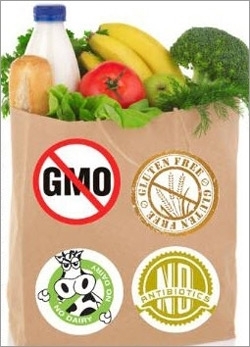 The food industry is relieved that measures that would have required disclosing genetically modified ingredients on food and beverage labels were defeated at the polls in both Colorado
and Oregon on Tuesday.
The food industry is relieved that measures that would have required disclosing genetically modified ingredients on food and beverage labels were defeated at the polls in both Colorado
and Oregon on Tuesday.
The Colorado proposal was soundly defeated, with 66% voting against it. But Oregon was a squeaker: 50.5% of residents voted "no" on labeling.
And while Grocery Manufacturers Association president and CEO Pamela G. Bailey subsequently issued a statement saying that the GMA is pleased by the rejections in those two states, GMA VP
of government affairs Michael Gruber acknowledged to The Wall Street
Journal that the state-by-state battles are in key respects a no-win scenario for the industry.
advertisement
advertisement
"These victories are a bit hollow," Gruber said, adding that "to be
drawn into these ballot initiatives is unpleasant and draws criticism," as well as representing "tremendous cost" for the industry.
Also, while GMA's statement didn't mention
this, voters in Maui County, Hawaii, on Nov. 4 narrowly approved a measure that is actually much more far-reaching than GMO labeling: a moratorium on all GMO crop cultivation.
Monsanto, the biggest seller of genetically modified seeds and an employer of about 1,000 people in Hawaii, has already said that it will mount a legal challenge to the Maui initiative,
reports NPR.org. A Monsanto spokesperson said that the measure
would have “significant negative consequences for the local economy, Hawaii agriculture and our business on the island.”
In addition to having invested heavily to
fight the proposals in Oregon and Colorado, GMA and allied organizations are in the midst of a legal challenge to a GMO labeling law passed earlier this year in Vermont. At least a dozen other states
had similar bills pending as of this past May, and Connecticut and Maine have already passed labeling bills, but theirs were written to be triggered only when other nearby states — e.g., Vermont
— implemented GMO labeling measures.
And whereas general public awareness of GMOs and the controversy surrounding them was relatively low even a few years ago, each new state
or local battle significantly raises awareness levels.
The food industry fears, of course, that GMO labeling would be perceived as a negative or even a warning by consumers,
and depress sales of the many products that contain GMO ingredients.
GMA, which represents more than 300 food, beverage and consumer products companies, continues to stress
that the Food and Drug Administration and numerous scientific bodies and regulatory agencies have determined that food and beverages containing GMOs are safe and materially no different than non-GMO
products, and to argue that anti-GMO movements and labeling efforts are based on misinformation.
In lobbying against GMO labeling measures, the industry maintains that having
a "patchwork" of state labeling laws would require separate supply chains to be developed for each state and ultimately harm consumers. "This maze of varied regulations based on inaccurate information
would cripple interstate commerce throughout the food supply and distribution chain, and ultimately increase grocery prices for consumers by hundreds of dollars each year," the GMA's Bailey said in
her statement following Tuesday's voting.
GMA and allied organizations are instead urging Congress to pass a "Safe and Accurate Food Labeling Act" introduced in April by U.S.
Rep. Mike Pompeo (R-Kan.), which would require labeling foods with GM ingredients "if the FDA ... determines that there is a health or safety risk."
The bill would reaffirm
the FDA's overriding authority over states in matters of food safety, require that the FDA approve all new GMO ingredients before they're brought to market, and establish federal standards for
companies that opt to voluntarily label their products for the absence or presence of GMO ingredients.
On the opposite side, the Center for Food Safety and other
pro-GMO-labeling organizations support HR 1699/S 809, the "Genetically Engineered Food Right-to-Know Act," which would require the FDA to enact a mandatory federal GMO labeling policy. These groups
assert that HR 4432 — which they've dubbed "Denying Americans the Right-to-Know" or the DARK Act — is designed to block any federal or state actions requiring labeling of GMO-containing
foods.
As previously reported by Marketing
Daily, consumers dubbed "LOHAS" because of their "lifestyles of health and sustainability" now consider the "non-GMO" claim on foods and beverages to be even more important than organic
certification. At the same time, a recent NPD Group study found that while more than half of U.S. consumers overall express some level of concern about GMOs, many primary shoppers can't clearly
describe GMOs when asked to do so, and just 11% say they're willing to pay more for non-GMO products.
The only certainty at the moment appears to be that the controversy,
legislative and legal battles and confusion are far from over. And as soft drink makers have learned in unsuccessfully trying to counter consumers' negative perceptions of the artificial sweetener
aspartame — another ingredient declared safe by the FDA based on a body of authoritative research — those arguments simply may not prevail in the face
of other research, not to mention rumors and speculation, shared and discussed on social media.